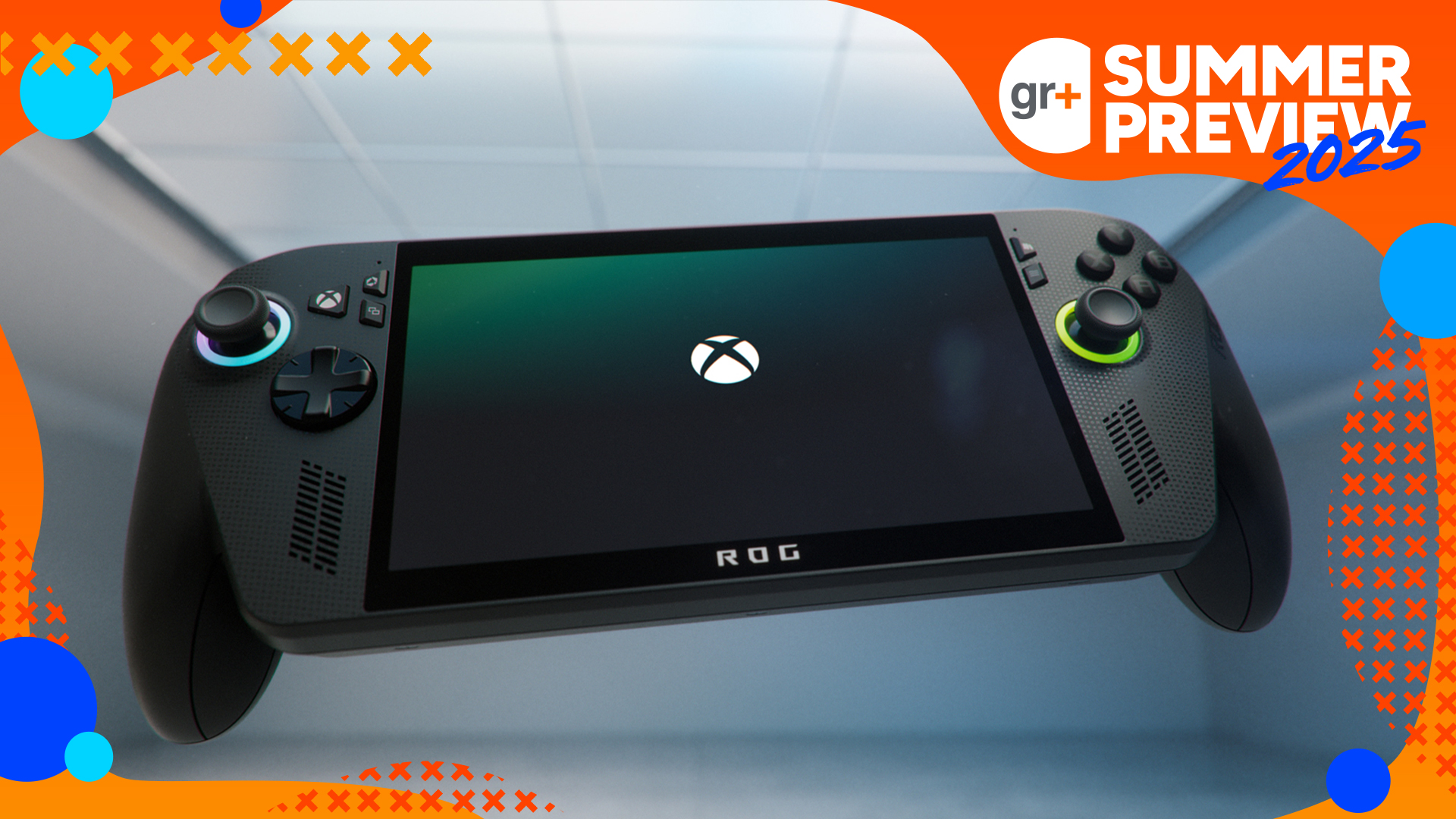
When I sat down with leaders from the Xbox hardware and Xbox ecosystem divisions a couple of weeks ago, it was to get an early look at two new consoles. The ROG Xbox Ally and the ROG Xbox Ally X, gaming handhelds that have been brought to life as part of a surprise collaboration between ASUS, Xbox, AMD, and the Windows division at Microsoft.
What became clear is that this isn't the existing ROG Ally systems with a simple Xbox rebrand, but rather an effort to finely tune the internal hardware and operating system to make a Windows-powered handheld feel as if it's a part of the broader Xbox ecosystem. I also started to wonder whether this work was a sign of what's to come from Xbox – an open borders approach to building a sustainable platform, unlike anything we've seen from any of the primary competitors in the console market.
"This is all about building you a gaming platform that always stays with you"
Sarah Bond, president of Xbox
What I didn't expect was for Xbox president Sarah Bond to come out this week and suggest exactly that. "At Xbox, our vision is for you to play the games that you want, with the people you want, anywhere you want. That's why we're investing in our next generation hardware lineup across console, PC, cloud, and accessories," says Bond. "This is all about building you a gaming platform that always stays with you. So that you can play the games that you want, across devices, anywhere you want, delivering you an Xbox experience not locked to a single store, or tied to one device."
With this statement, and news that Xbox entered into a "multi-year partnership with AMD to co-engineer silicone across a platform of devices, including our next-generation Xbox consoles", it's worth reevaluating the ROG Xbox Ally X to see what it may suggest about the future of Xbox hardware.
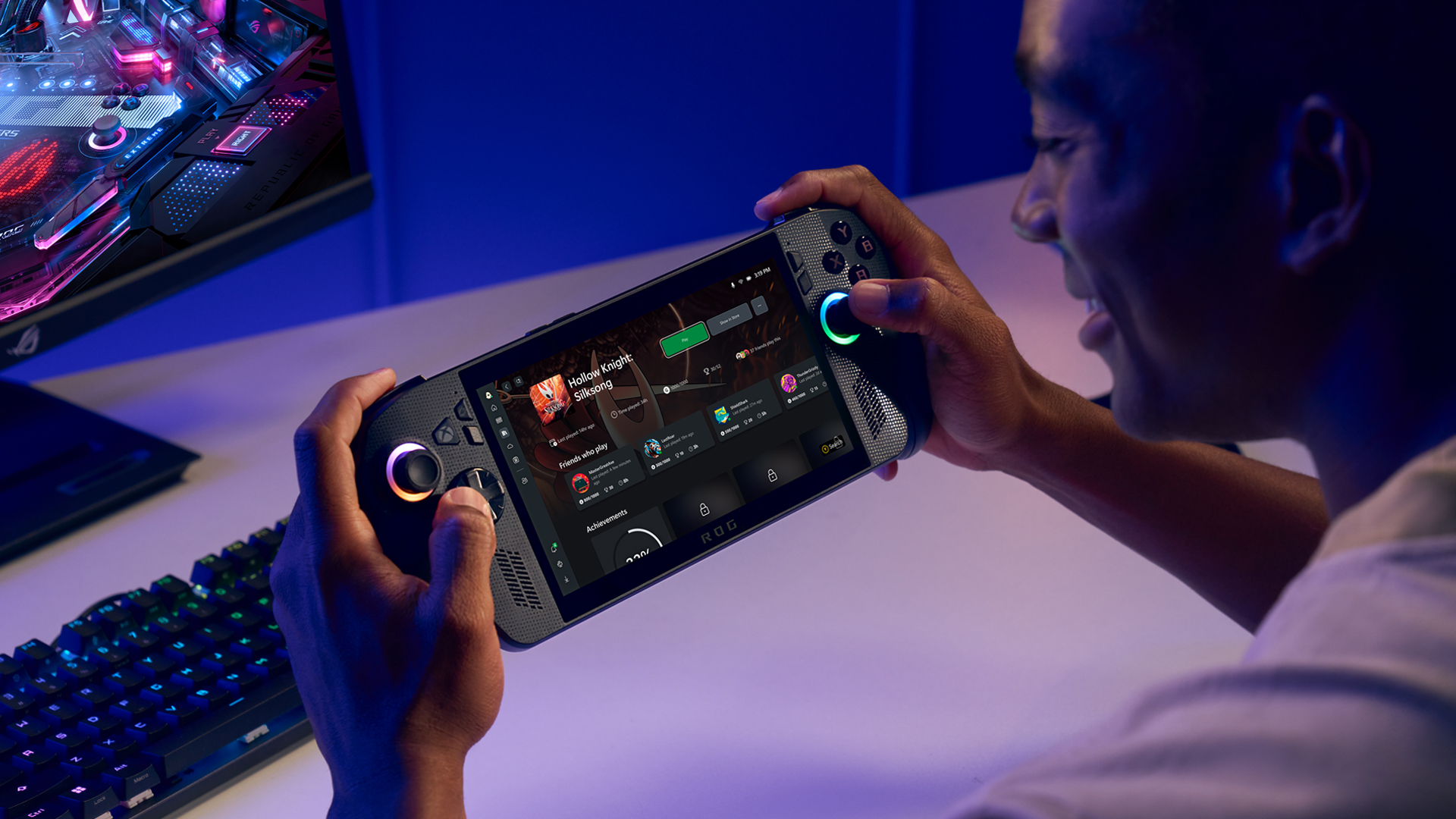
The AI Of It All
Let's start with what we know. The next Xbox console will be powered by AMD chips, just like the Xbox Series X. What we don't know is why artificial intelligence is part of the conversation. "Together with AMD, we are advancing the state of art in gaming silicon to deliver the next-generation in graphics innovation to unlock a deeper level of visual quality, immersive gameplay, and player experiences enhanced with the power of AI," says Bond.
It remains unclear how artificial intelligence is going to enhance the way games play or how we play them, but this isn't the first time that I've heard an Xbox leader talk about AI this month. The ROG Xbox Ally X is powered by an AMD Ryzen AI Z2 Extreme, which Roanne Sones – the CVP of gaming devices and ecosystem at Xbox – explains was a "proactive decision on our part to put AI acceleration with dedicated silicon into a handheld form factor."
As for the benefits of AI-powered gaming, I'm still a little fuzzy on the details – just like everybody else – although this AMD partnership does mean that the next-gen Xbox won't have DLSS support, which is the AI upscaling technology Nvidia has deployed on PC and Switch 2 with solid results in boosting performance and system efficiency.
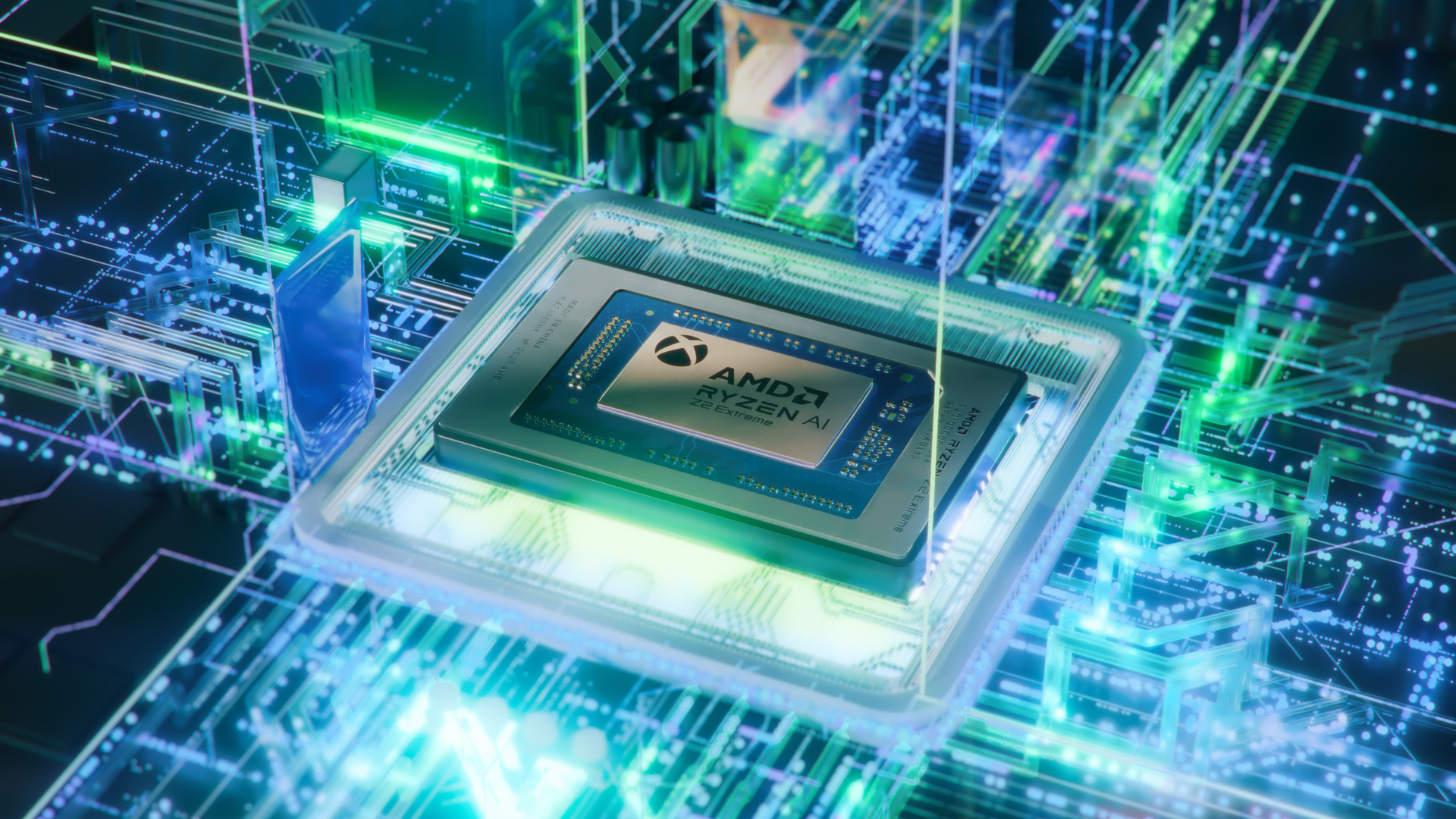
"We do believe that the way you will interact with AI is through the voice"
Roanne Sones, CVP of gaming devices and ecosystem
"Fundamentally, it's hardware's job to push the boundaries of what could be possible, put that into the hands of players, and then just let developers dream about what can now be done," says Sones of the Ryzen AI Z2 Extreme processor. "It's a little bit of a chicken-and-egg situation, because until we forward bet with the hardware you're never going to get the experiences to really be realized."
Sones also points to the importance of AI being introduced through dedicated silicon, so that "as the innovations come, it's not going to take away from the processing power of the hardware and the performance of the actual gameplay, which is so fundamentally important to what we're building with these products." Another AI element coming to ROG Xbox Ally systems is via a microphone built into the console, a future-proofing mechanism. "We do believe that the way you will interact with AI is through the voice. It's the natural way that I think all humans are going to talk to devices in the future."
I can only speculate here, but I do get the sense that the work being done on the ROG Xbox Ally X is an early indication of the direction Xbox is moving. Does that mean that next-generation Xbox controllers will come with a microphone built-in as standard, allowing you to interface directly with a console in a strange sort-of revival of some Kinect functionality? Not necessarily, Sones is talking specifically about application of AI in a handheld form-factor here; but I also know that it's rare for large companies to invest in (and iterate) new technologies unless it has long-term strategic value.
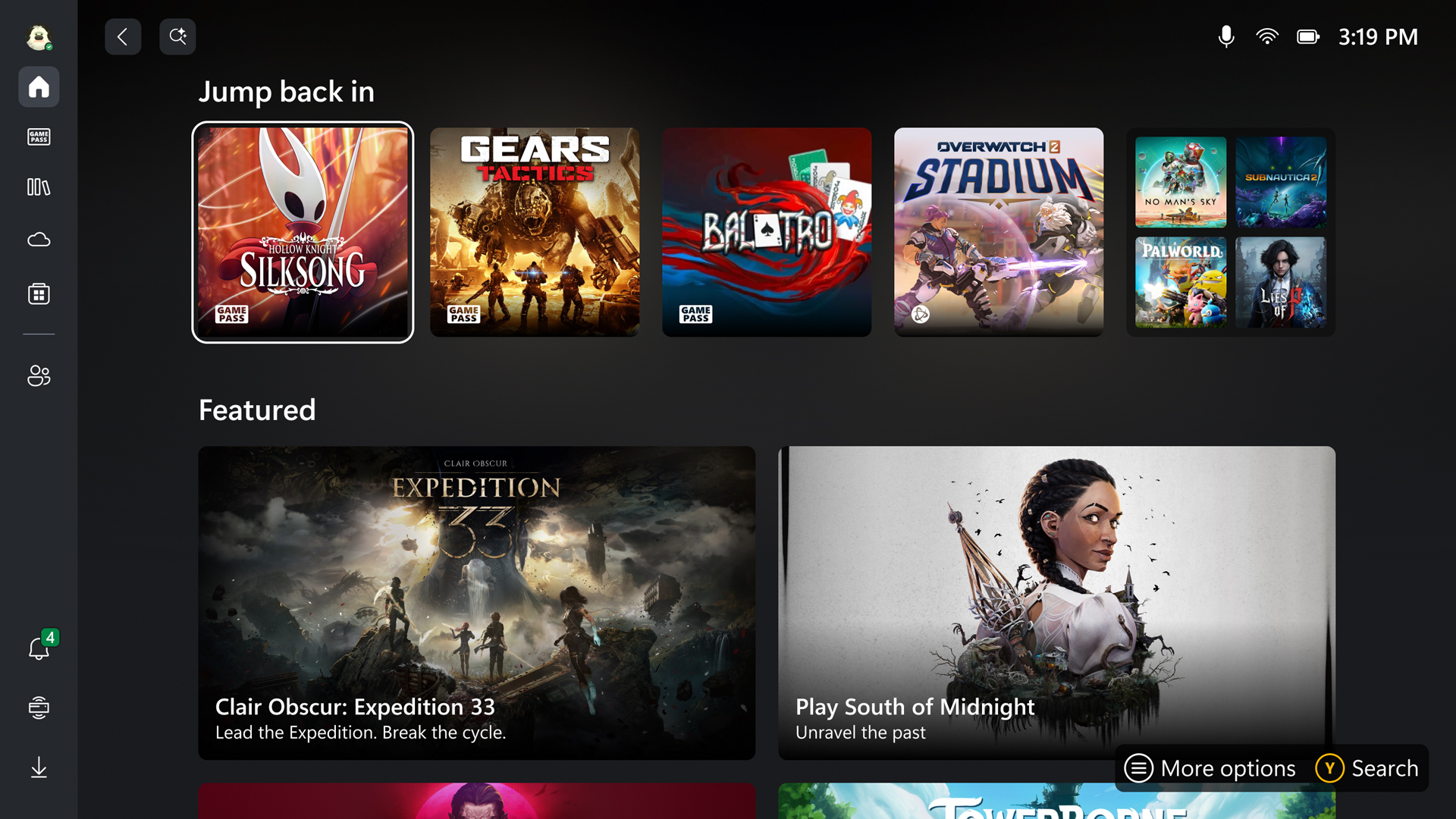
The Next-Gen Of Windows
While the operating system that powers your Xbox Series X is undoubtedly based on Windows, it is worlds apart from the experience of interfacing with the Xbox app on PC or handheld PCs right now. In fact, I'd go so far as to say that one of the biggest impediments to the Game Pass and Play Anywhere initiatives proliferating more widely to PC players – enough to attract them away from Steam or the Epic Games Store – is because of the quality of that Xbox app experience. It can be rough.
The ROG Xbox Ally handhelds, running on an optimized Windows 11 OS, may change this. "Windows and Xbox, arguably these two organizations have existed separately," says Sones. "So this product has really brought the teams together to work in a very meaningful way." Jason Beaumont, VP of experiences and platforms at Xbox, adds: "We took a lot of the devs who have been working for 20-plus years on the Xbox OS, and they began working on the Windows code base."
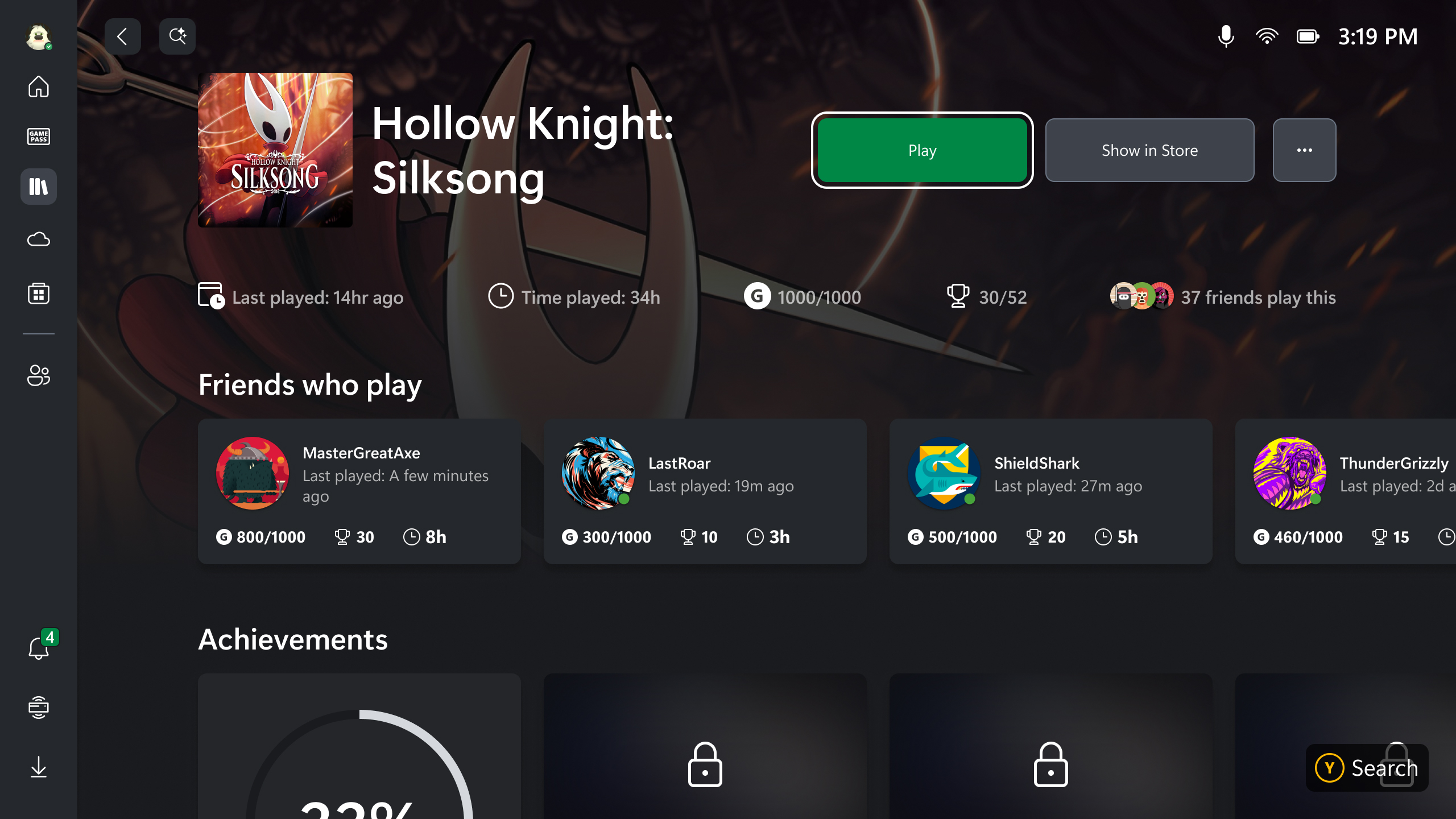
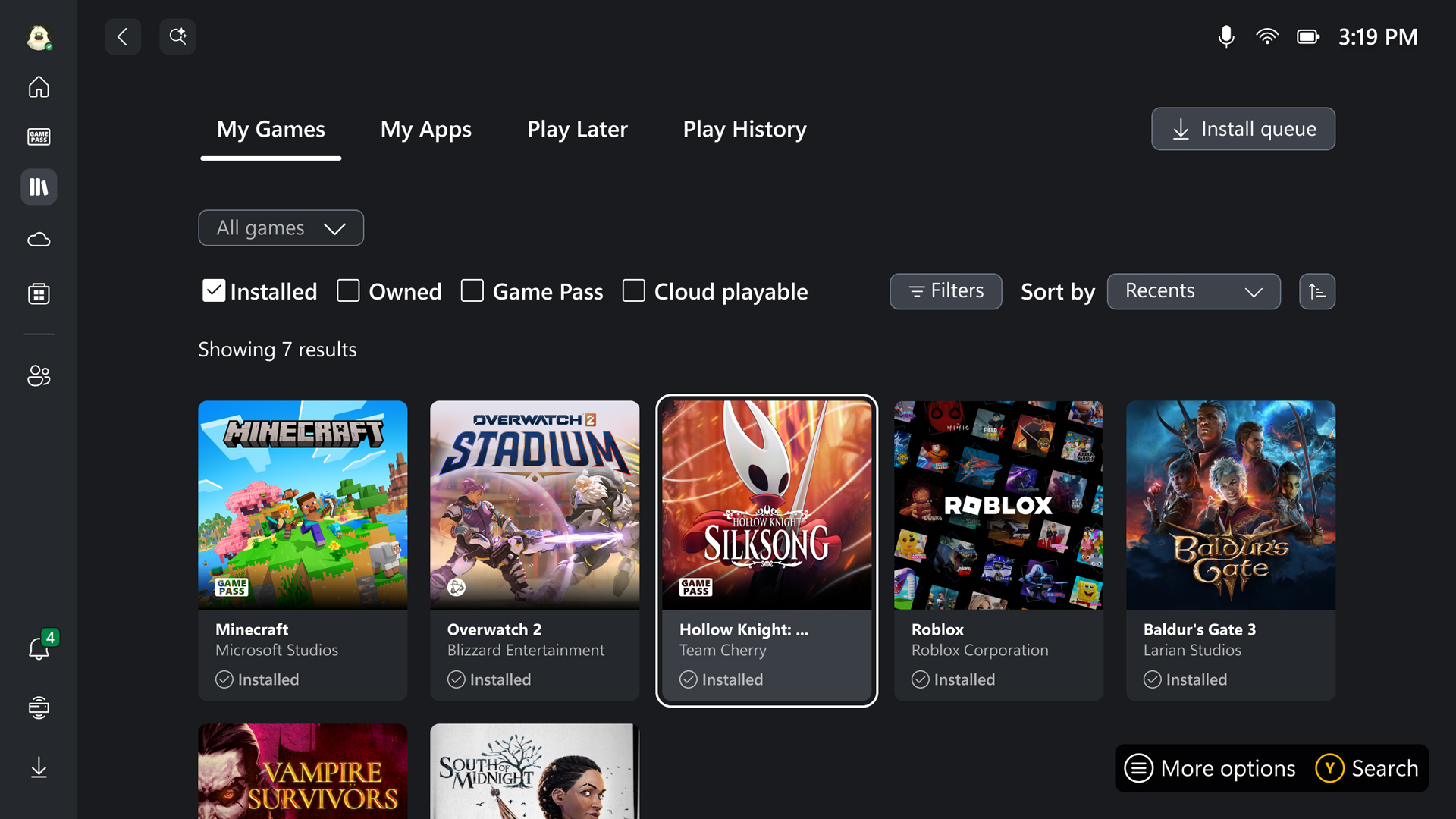
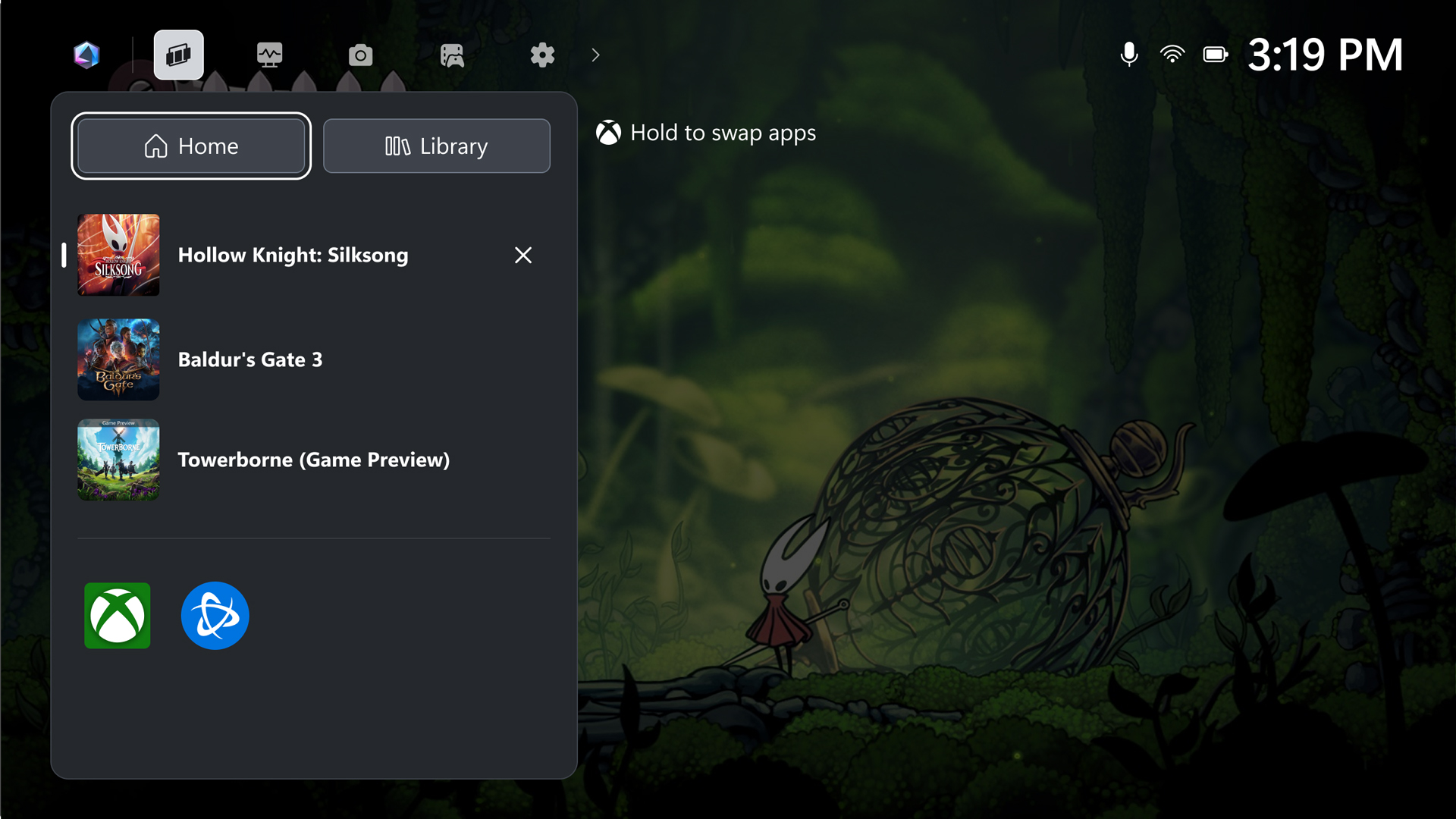
When you power on either of the ROG Xbox Ally handhelds, you're met with a new full-screen Xbox experience that is exceptionally similar to the one you'd find on Series X. You can easily navigate between your library, recently played games, and more. It also disables a lot of the functions of Windows that are surplus to gaming until you need them. This streamlined OS is one of the reasons why I'm choosing to invest in the ROG Xbox Ally X later this year, rather than just jump at the standard ROG Ally X right now.
"The full screen experience is really a game changer that we've developed in partnership with Windows. It lets Xbox be your gaming home," says Dominique Gordon, senior product manager lead at Xbox. "This isn't just like the Xbox app running on top of Windows. What's actually happening behind the scenes here is that a bunch of components of Windows that don't have to be required for gaming aren't even loaded, giving all of that power back to your games."
This, Gordon says, is "the power of Xbox with the full freedom you expect from Windows." It's also an exceptional amount of work. Everybody I've spoken to at Xbox says that this sort of cross-collaboration was necessary to realize its ambition of moving into the handheld space, but there's a part of me that wonders whether it's an early indicator of the future of Xbox's platform – potentially even stretching into home console territory.
"The full screen experience is really a game changer that we've developed in partnership with Windows"
Dominique Gordon, senior product manager lead
Here's Beaumont again, speaking about this collaboration between Xbox, Windows, AMD, and ASUS. "We have these four teams working together to continually iterate and refine this [handheld PC] experience. If you've played Xbox in the past, you'll know that the features you see on day one aren't the ones that you see on day 30, let alone 60 or 90… As excited as I am for the launch of these handhelds, I'm actually more excited for all the updates that are going to keep coming from our collaboration."
The idea that Xbox's next home console will essentially be a PC is sure to leave some feeling a little uneasy. I know that I've always veered towards console gaming because of the simplicity; where new games come out of the box optimized and ready to go on my hardware, and the only distraction from my gaming experience is a few notifications that friends want to party up and play. Still, if the Windows and Xbox teams have genuinely found a way to combine the flexibility of Windows with the focus of the Xbox platform then I'm willing to keep an open mind here.
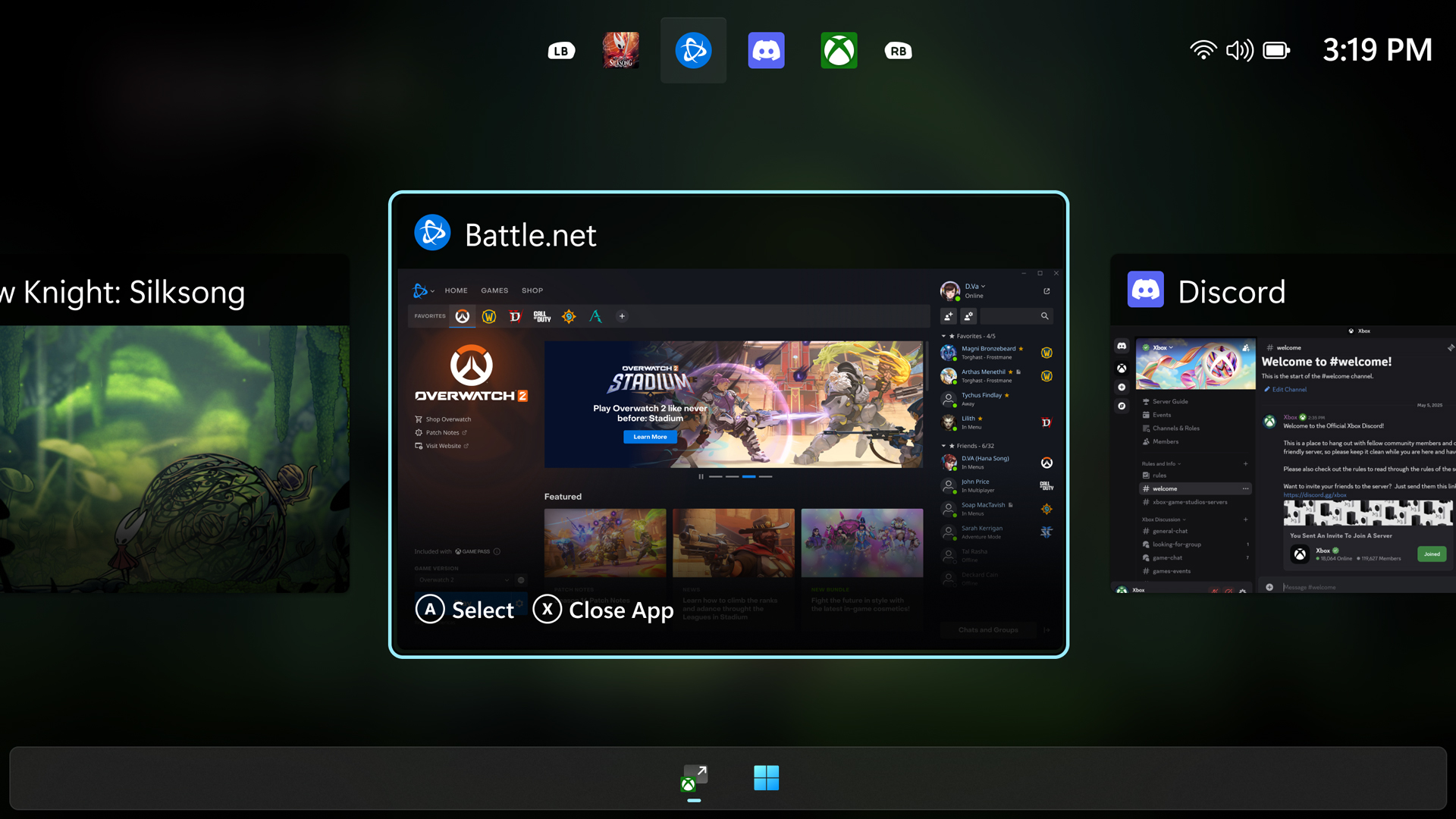
The Aggregated Gaming Library
Of everything that Bond had to say about 'next-generation Xbox' there was one comment that really caught my attention. "This is all about building you a gaming platform that always stays with you. So that you can play the games that you want, across devices, anywhere you want, delivering you an Xbox experience not locked to a single store, or tied to one device."
It's that last line, hinting towards a single point of entry for all of your games, which is where I really wonder whether Xbox's next-gen home console will take the final form of this newfound collaboration between the Xbox and Windows divisions. One of the best features of the ROG Xbox Ally handhelds is this aggregated gaming library, giving you quick access to all of your games from Xbox, Game Pass, Battle.net, Steam, and other PC-based storefronts.
"Because the ROG Xbox Ally is Windows, you can launch and play your PC games natively from both Xbox as well as other PC game stores," says Brianna Potvin, principal software engineering lead at Xbox. "You can also stream your console games through cloud gaming or remote play. What this means is that your whole library, including hundreds of Game Pass games, all of your installed games from leading third-party storefronts, is with you everywhere you go."
"Because the ROG Xbox Ally is Windows, you can launch and play your PC games natively from both Xbox as well as other PC game stores"
Brianna Potvin, principal software engineering lead
While the ROG Xbox Ally will only play Xbox games that have PC versions natively, that won't be true of Xbox's next-gen hardware. Bond has already confirmed that Microsoft is "maintaining compatibility with your existing library of Xbox games" so there is still a console component in place here for whatever Xbox ultimately does next.
Still, this aggregated gaming library is a feature that really sells me on the ROG Xbox Ally handhelds over Valve's Steam Deck. All of my games, no matter which storefronts they are scattered between, available from within one ecosystem at the press of a button. It's the sort of featureset that could prove to be a real differentiator in the market if Xbox is able to bring all of this work to a home console environment.
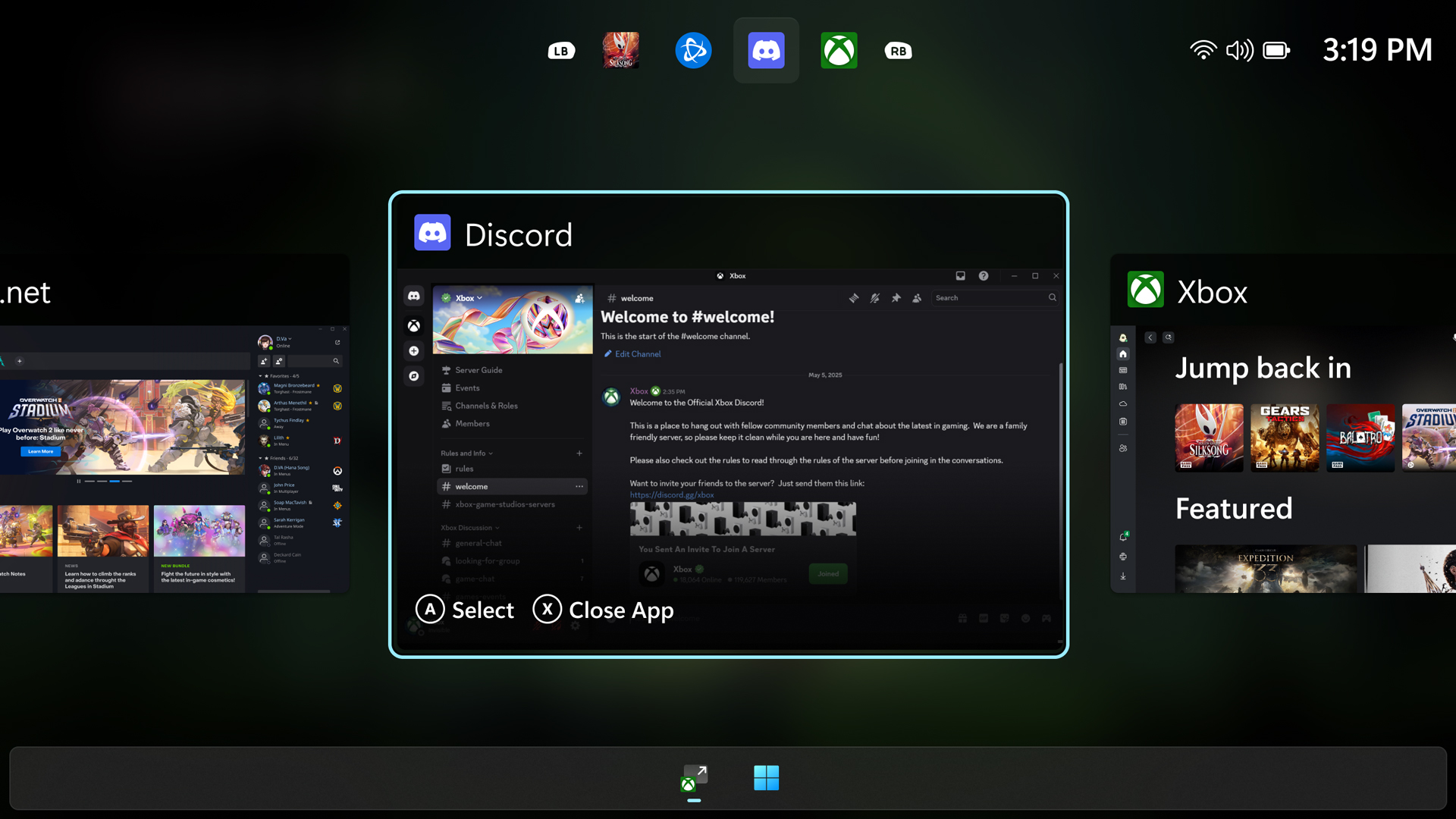
Is there a world in which I could, from the comfort of my couch, stream or remote play video games I just so happen to own from one of the various PC storefronts? Let's push it one step further. If the hardware and OS powering a next-gen Xbox console is more aligned with a Windows-based machine, is there a world in which my PC games could play natively, upscaled by AI automated systems, while I still enjoy the benefits of titles that are optimized specifically for console hardware?
Xbox, Windows, AMD, and ASUS are already putting the work in. The question we should all be asking now is where it will materialize next. This is what I'll be looking out for in the years ahead. I suspect we won't see the Xbox Series X successor arrive until 2028 at the earliest, although maybe – just maybe – it's the ROG Xbox Ally X and Xbox app for PC that could provide a light in the dark while we wait.
Xbox Special | Our exclusive look at Xbox in 2025 and beyond continues...
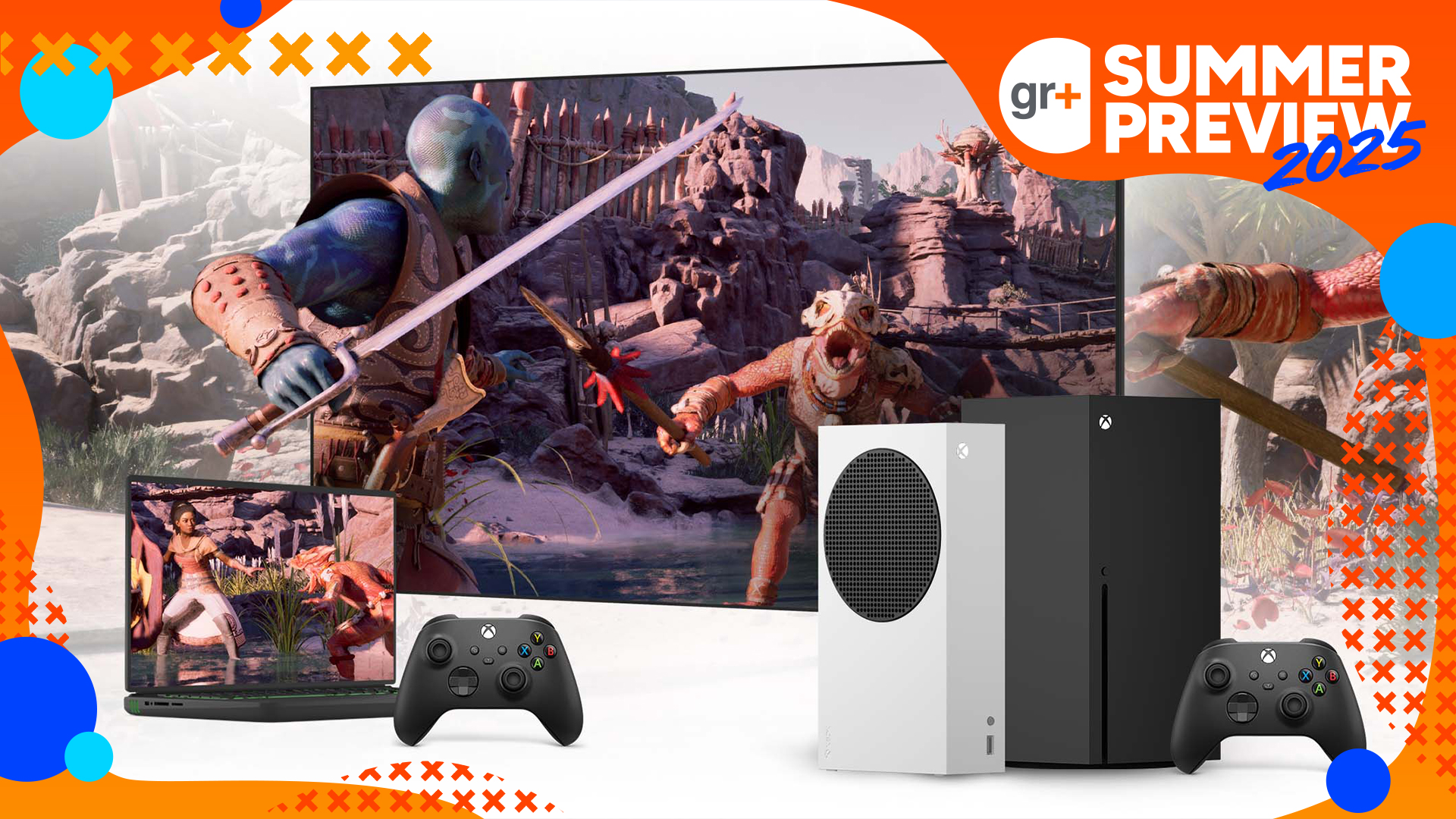
Exclusive | Inside Xbox Play Anywhere: As Xbox Play Anywhere takes center stage, the future of Xbox has never been clearer. To learn more about the initiative, we spoke to leaders from across Xbox Game Studios: "Our plan is to keep making amazing games and have them reach as many players as we can"

Gears of War: Reloaded campaign preview: If playing this classic campaign co-op with one player on a PS5 and the other on an Xbox Series X is wrong, then we don't want to be right. This is shaping up to be the terrific and loving re-release that builds on the success of Gears' 2015 Ultimate Edition.
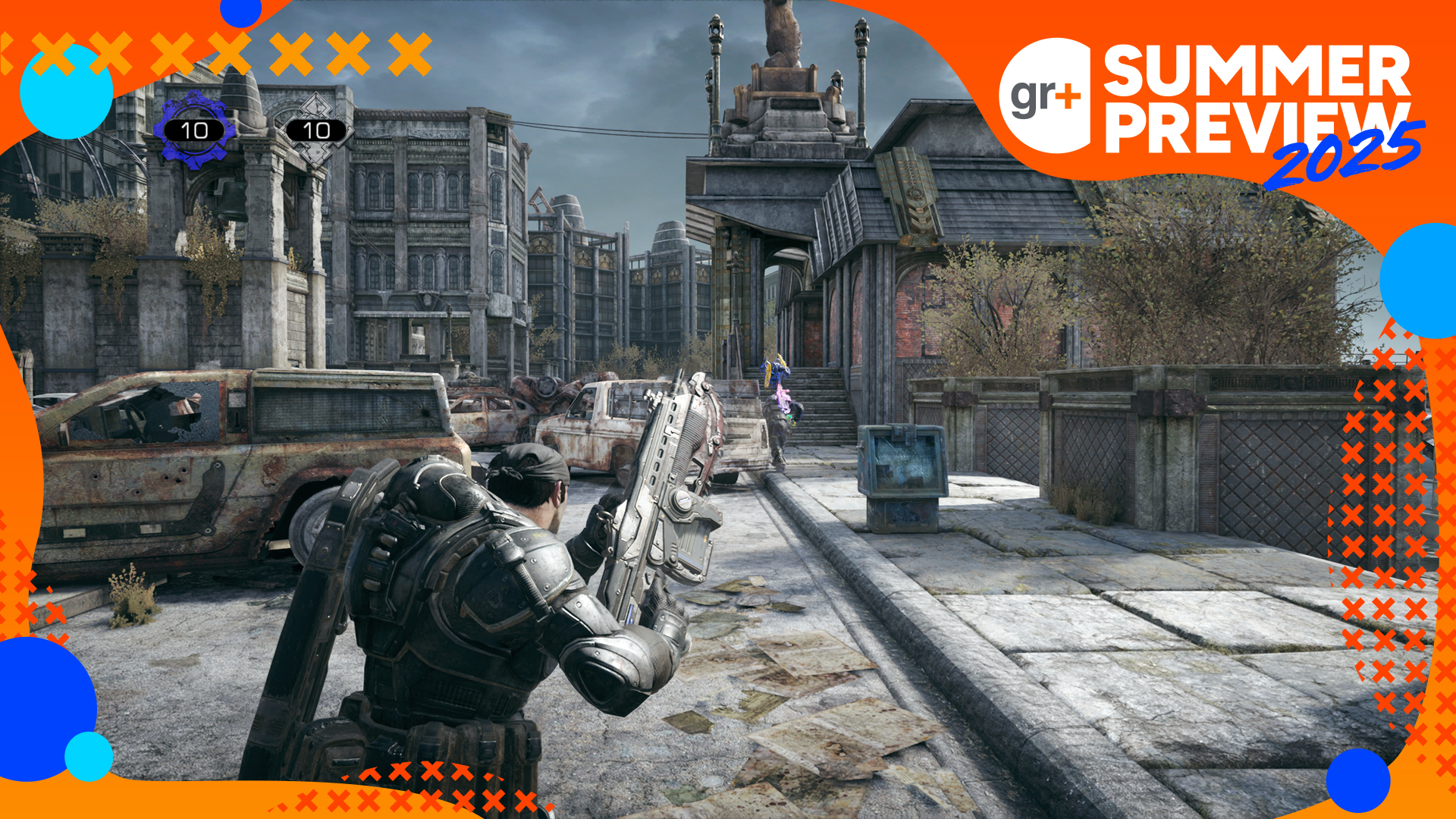
Gears of War: Reloaded multiplayer preview: Both the best and worst thing we can say about returning to the multiplayer mode that once defined our lives is – it's still Gears of War. Chunky, uneven, and punishing. It's a tricky proposition in 2025, but we're so glad Gears is back in action.
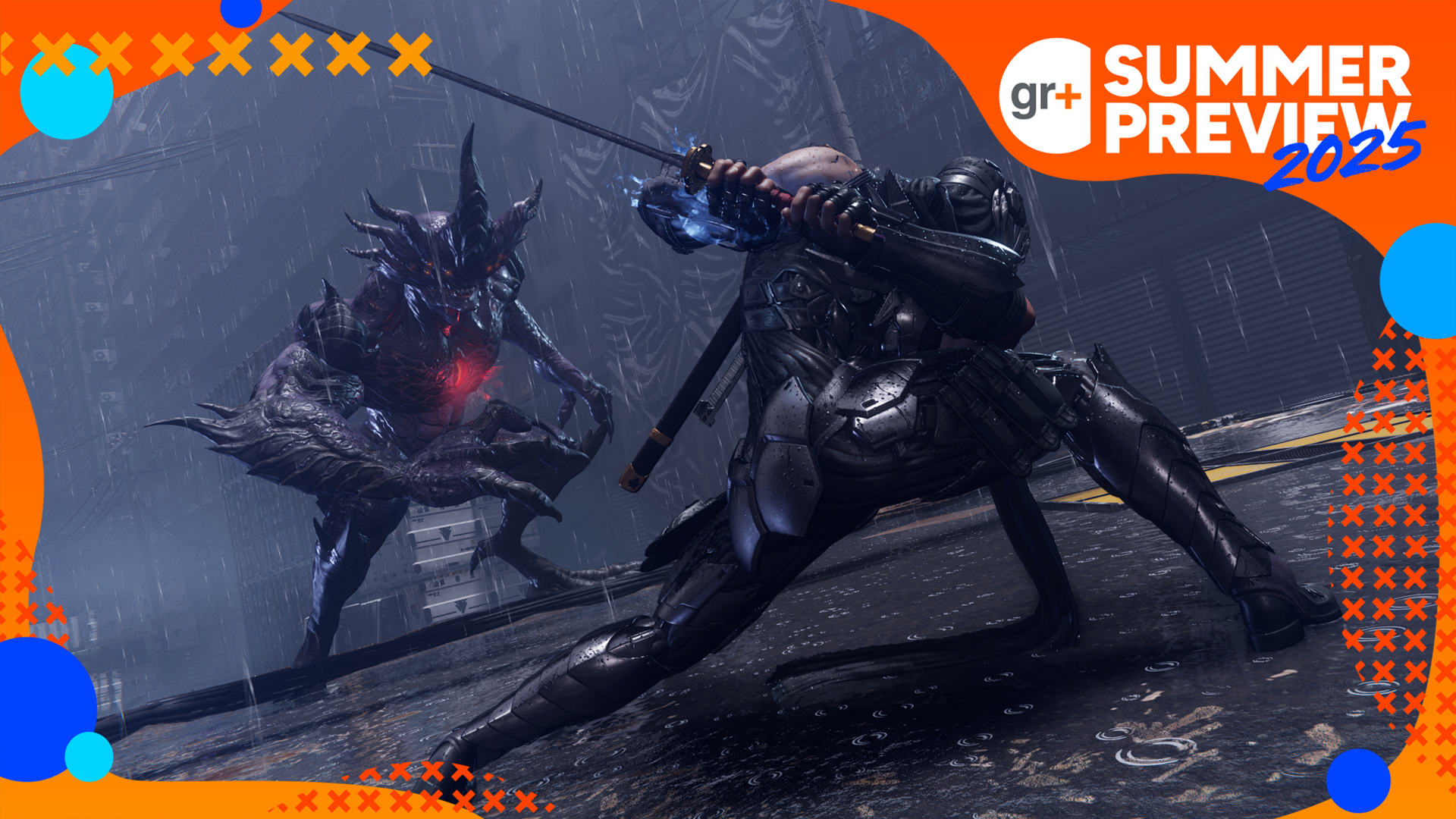
Ninja Gaiden 4 hands-on preview: It's clear from slicing and dicing waves of enemies that, yes, the joys of the best 3D games in this series are back (and yes, we did manage to beat the boss fight). Talking to the devs, we reflect on the evolution of the action game genre over the last decade.

Ninja Gaiden 4 interview: Team Ninja and PlatinumGames say that "Soulslikes have kind of taken center stage" since the last installment to the Ninja Gaiden series, but the devs promise that "we are going against the trend in that way" with the upcoming 2025 release of Ninja Gaiden 4.
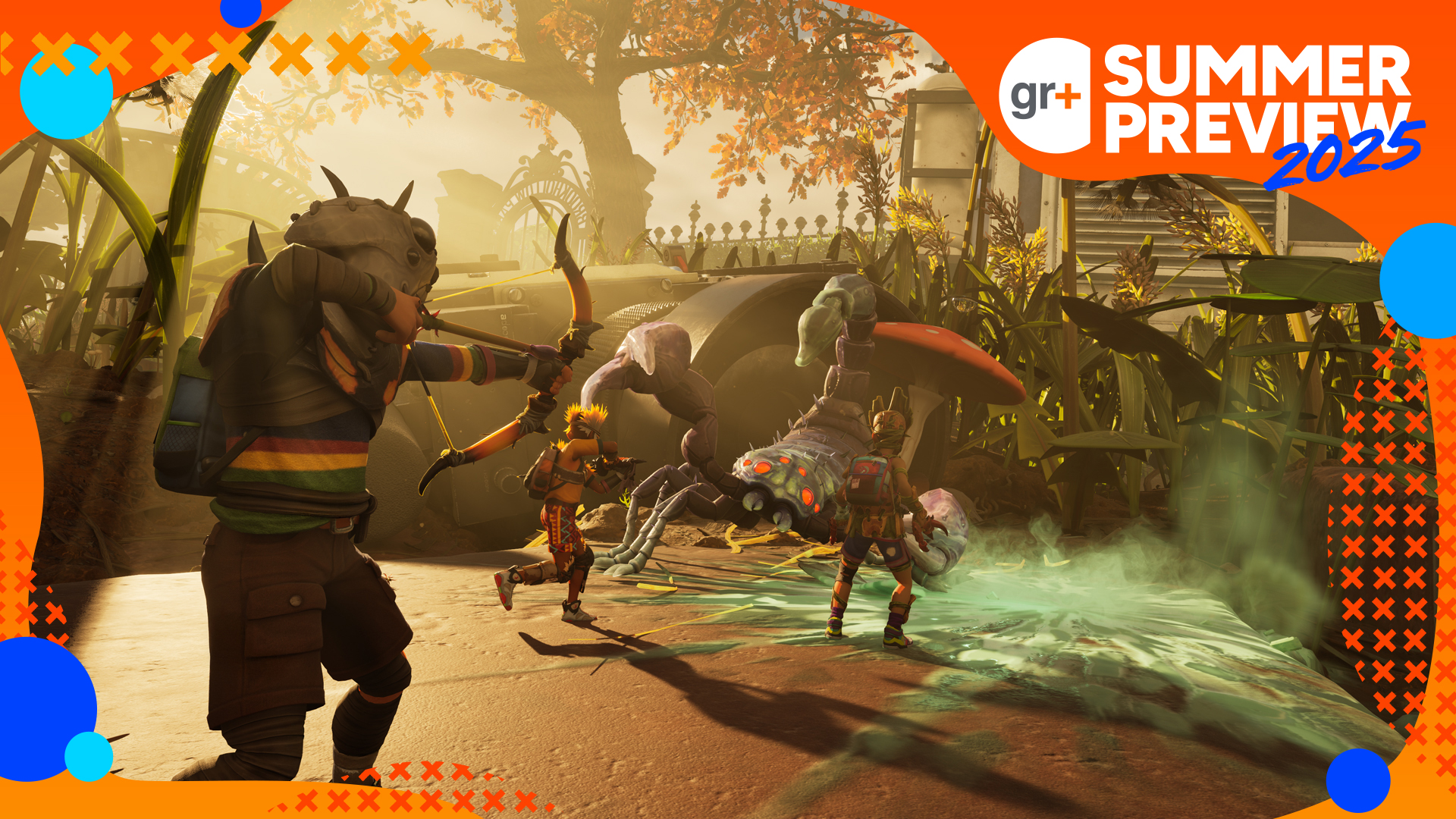
Grounded 2 hands-on preview: 30 minutes with a survival game like Grounded 2 is just scratching the surface, but we are already hooked. Talking with the devs, they explain why now was the right time to jump into a full, numbered sequel.

Is Grounded 2 an Xbox exclusive? Obsidian won't rule out bringing Grounded 2 to PS5 and other platforms in the future (just as its predecessor did in 2024), but says that this initial release is "all about being in Game Preview and Early Access"

Grounded 2 player count: Everything is bigger in Grounded 2, but Obsidian never considered stretching beyond four-players. Speaking to GR+, the studio says doing so "would have undermined what Grounded was really about."

Grounded 2 roadmap: Obsidian is targeting updates every "four to five months" after the studio learned the hard way: "When we started with Grounded 1 in early access we were trying to do monthly updates – that was a hassle and it didn't work"
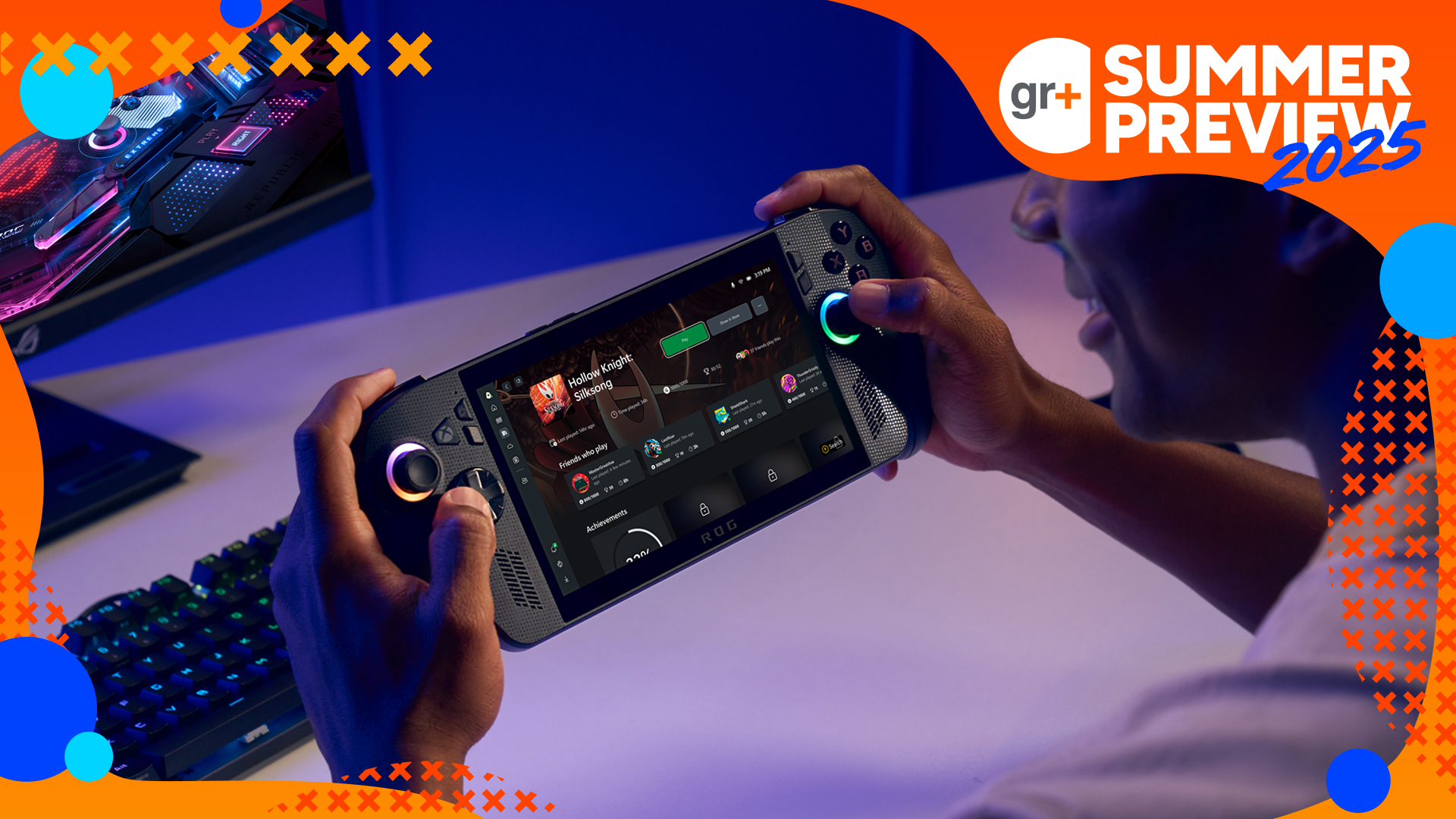
ROG Xbox Ally X hands-on preview: With its first handheld, Xbox's 'Play Anywhere' strategy is coming into sharper focus. And I'm not saying I regret buying a Nintendo Switch 2 at launch... but the ROG Xbox Ally X is almost everything I want from a new Xbox handheld.
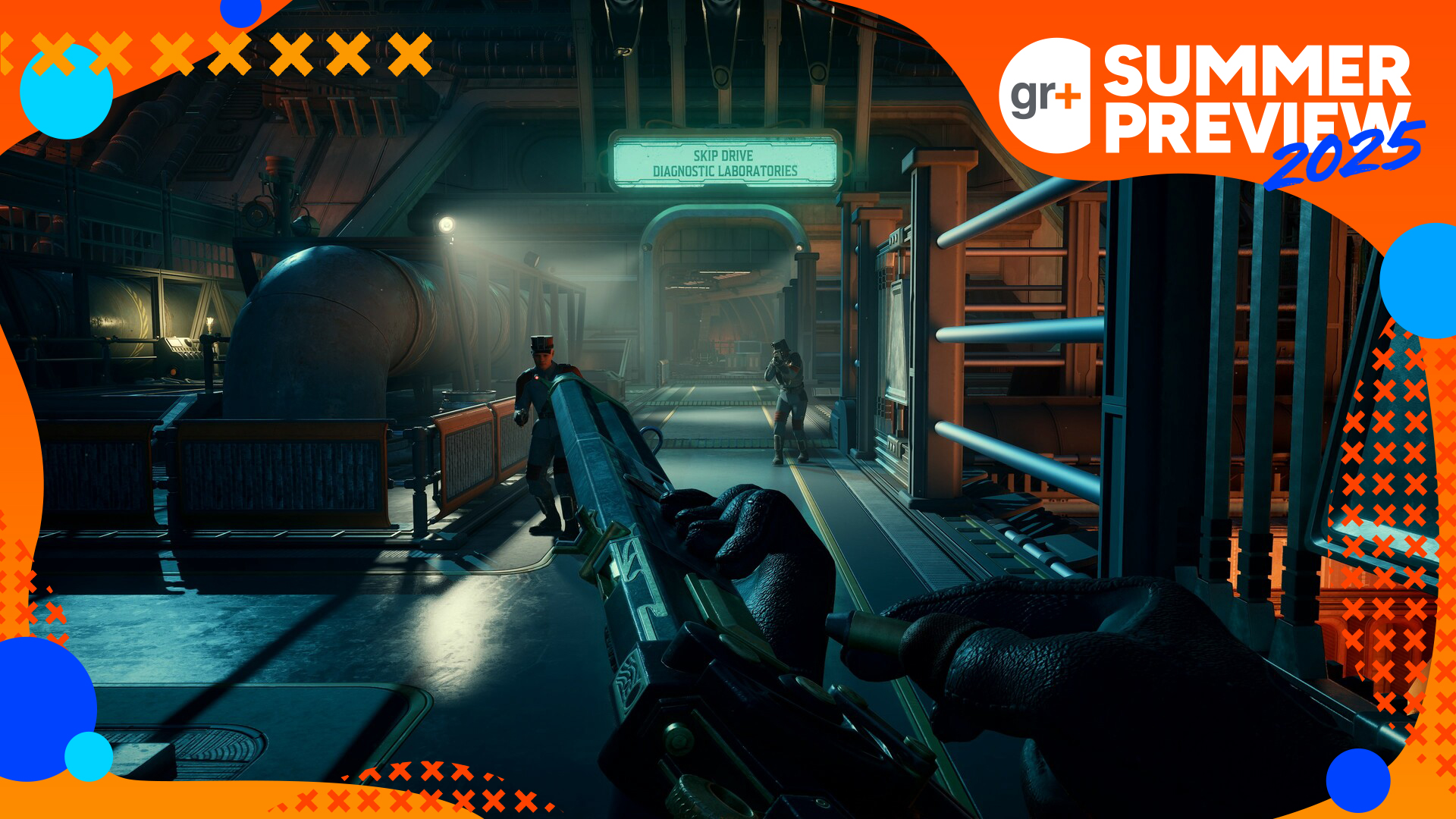
The Outer Worlds 2 hands-on preview: This sequel feels like one of our favorite RPG devs (they also made Fallout: New Vegas and Avowed) finally got the resources to make a new sci-fi adventure with the scope they deserve. Full of details, choices, and great action, this is shaping up to be exceptional.
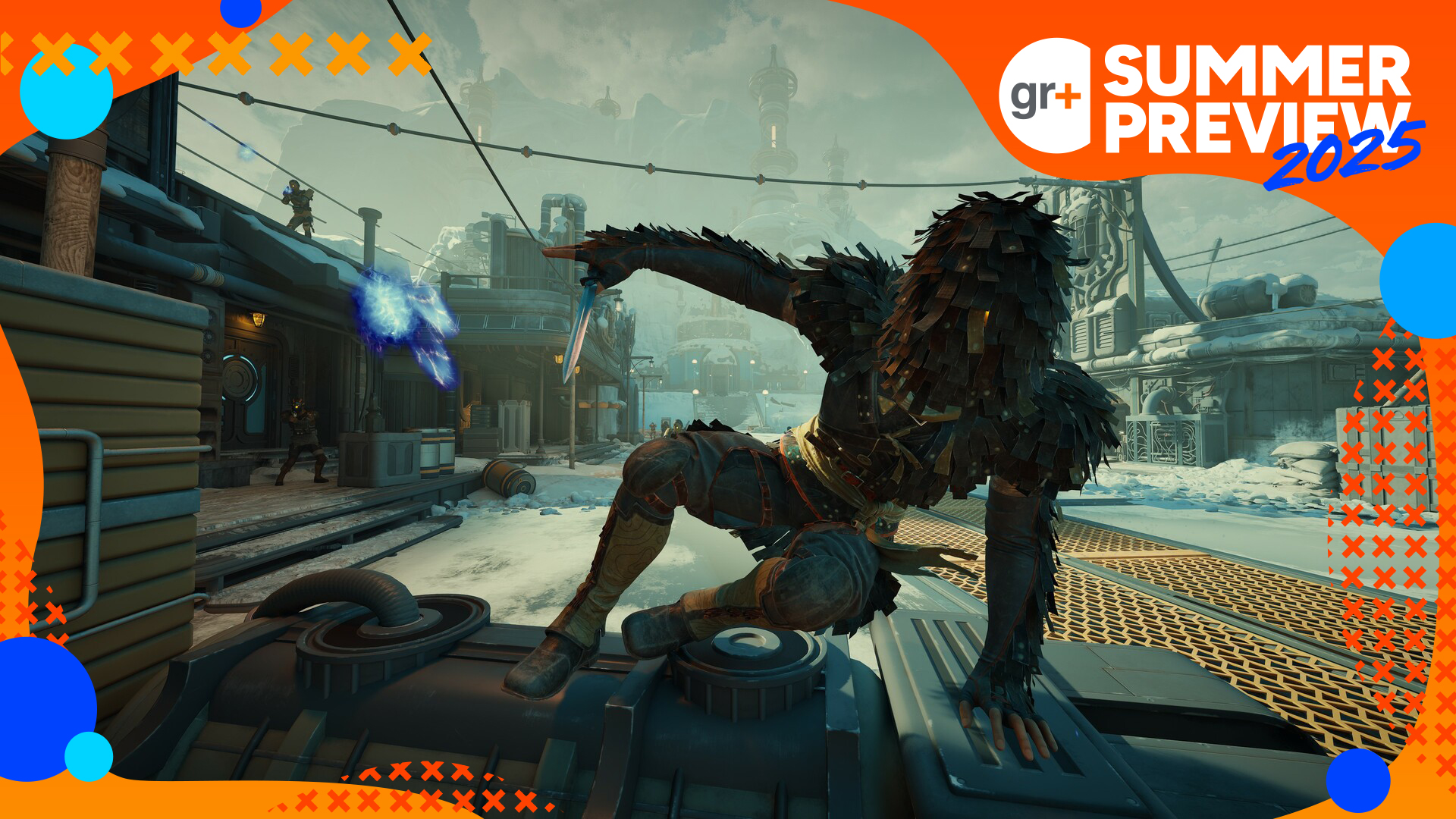
The Outer Worlds 2 exclusive interview: With The Outer Worlds 2, Obsidian Entertainment is dedicated to making sneaky playstyles truly viable in its upcoming sequel: "We have a strike team going room-by-room to see if we can stealth properly through each location"

The rising cost of video games: The Xbox Showcase confirmed that The Outer Worlds 2 will be the first video game out of Xbox Game Studios in 2025 to cost $80. Obsidian Entertainment says we don't set the prices for our games" and wishes "everybody could play" its new RPG.

Josh is Editor-in-Chief of GamesRadar+. He has over 18 years experience in both online and print journalism, and was awarded a BA (Hons) in Journalism and Feature Writing. Josh has contributed to world-leading gaming, entertainment, tech, music, and comics brands, including games™, Edge, Retro Gamer, SFX, 3D Artist, Metal Hammer, and Newsarama. In addition, Josh has edited and written books for Hachette and Scholastic, and worked across the Future Games Show as an Assistant Producer. He specializes in video games and entertainment coverage, and has provided expert comment for outlets like the BBC and ITV. In his spare time, Josh likes to play FPS games and RPGs, practice the bass guitar, and reminisce about the film and TV sets he worked on as a child actor.
You must confirm your public display name before commenting
Please logout and then login again, you will then be prompted to enter your display name.


